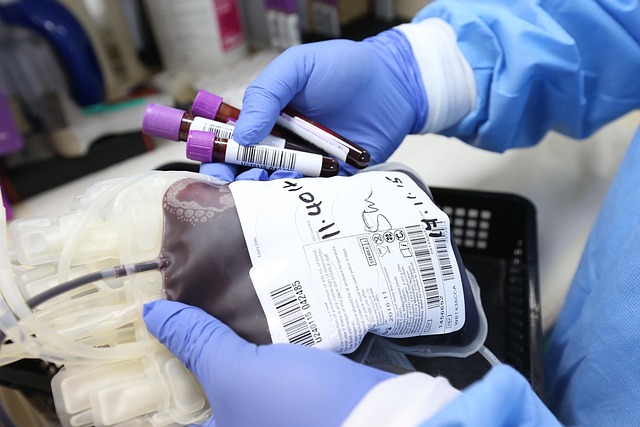Medicare-Covered Meal Delivery Programs
Some Medicare Advantage plans may include meal delivery benefits, offering nutritious meals for those recovering from hospital stays or managing chronic conditions. Learn what is covered, eligibility requirements, and how to find programs that fit your needs.

How do Medicare Advantage plans offer meal delivery benefits?
Medicare Advantage plans, also known as Medicare Part C, are offered by private insurance companies approved by Medicare. These plans often include additional benefits beyond Original Medicare (Parts A and B), such as dental, vision, and hearing coverage. In recent years, some Medicare Advantage plans have begun offering meal delivery services as part of their supplemental benefits package.
These meal delivery benefits are typically designed to support seniors during specific circumstances, such as:
-
After a hospital stay or inpatient rehabilitation
-
While managing chronic conditions like diabetes or heart disease
-
For those with mobility issues that make grocery shopping and meal preparation difficult
It’s important to note that not all Medicare Advantage plans offer meal delivery services, and the extent of coverage can vary widely between plans and providers.
What are the eligibility requirements for Medicare-covered meal programs?
Eligibility for Medicare-covered meal delivery programs depends on several factors:
-
Enrollment in a Medicare Advantage plan that offers meal delivery benefits
-
Meeting specific health-related criteria, such as:
-
Recent discharge from a hospital or skilled nursing facility
-
Diagnosis of certain chronic conditions
-
Recommendation from a healthcare provider
-
-
Assessment of nutritional needs by a qualified healthcare professional
To determine if you’re eligible for meal delivery services through your Medicare Advantage plan, contact your plan provider directly. They can provide detailed information about the specific requirements and how to initiate the process.
What types of meals and nutritional standards are typically provided?
Medicare-covered meal delivery programs focus on providing nutritionally balanced meals tailored to seniors’ specific dietary needs. These meals are generally:
-
Designed by registered dietitians or nutritionists
-
Portion-controlled to meet caloric requirements
-
Customized to accommodate common health conditions (e.g., low-sodium, diabetic-friendly, heart-healthy)
-
Prepared with high-quality ingredients
-
Ready to heat and eat, requiring minimal preparation
Most programs offer a variety of menu options, including breakfast, lunch, and dinner selections. Some may also provide snacks or nutritional supplements. The meals are typically delivered frozen or refrigerated, with clear heating instructions included.
How can seniors find and enroll in a meal delivery program through Medicare?
To find and enroll in a Medicare-covered meal delivery program, follow these steps:
-
Review your current Medicare Advantage plan: Check your plan’s documentation or contact your provider to see if meal delivery benefits are included.
-
Compare Medicare Advantage plans: If your current plan doesn’t offer meal delivery, use the Medicare Plan Finder tool on Medicare.gov to compare plans in your area that include this benefit.
-
Consult with your healthcare provider: Discuss your nutritional needs and health conditions to determine if you meet the eligibility criteria for meal delivery services.
-
Contact the Medicare Advantage plan provider: If you’re eligible, reach out to the plan provider for specific enrollment instructions and to initiate the service.
-
Complete any required assessments: Some plans may require a nutritional assessment or doctor’s recommendation before approving meal delivery services.
-
Choose your meals: Once approved, you’ll typically be able to select your meals from a provided menu, taking into account any dietary restrictions or preferences.
| Medicare Advantage Provider | Meal Delivery Benefit | Eligibility Requirements | Duration of Coverage |
|---|---|---|---|
| UnitedHealthcare | Post-discharge meals | Recent hospital stay | Up to 28 days |
| Humana | Chronic condition meals | Specific health criteria | Varies by plan |
| Aetna | Home-delivered meals | Doctor recommendation | Up to 14 days |
| Anthem | Post-acute care meals | Hospital discharge | Up to 10 days |
Prices, rates, or cost estimates mentioned in this article are based on the latest available information but may change over time. Independent research is advised before making financial decisions.
What are the benefits of meal delivery for seniors managing health conditions?
Meal delivery programs offer numerous benefits for seniors, particularly those managing chronic health conditions:
-
Improved nutrition: Ensures seniors receive balanced, nutrient-rich meals tailored to their specific dietary needs.
-
Medication management: Proper nutrition can help medications work more effectively and reduce side effects.
-
Reduced hospital readmissions: Nutritious meals can support faster recovery and help prevent complications that may lead to rehospitalization.
-
Increased independence: Allows seniors to remain in their homes longer by providing essential nutritional support.
-
Stress reduction: Eliminates the need for grocery shopping and meal preparation, which can be challenging for some seniors.
-
Social interaction: Regular meal deliveries provide opportunities for brief social interactions, which can be beneficial for seniors living alone.
-
Weight management: Portion-controlled meals can help seniors maintain a healthy weight, which is crucial for managing many chronic conditions.
-
Improved quality of life: Better nutrition often leads to increased energy, improved mood, and overall well-being.
Medicare-covered meal delivery programs offer a valuable solution for seniors looking to maintain their health and independence. By providing nutritious, tailored meals, these programs support better management of chronic conditions and aid in recovery after hospital stays. If you or a loved one are enrolled in a Medicare Advantage plan, exploring the availability of meal delivery benefits could be a significant step towards improving overall health and quality of life.
This article is for informational purposes only and should not be considered medical advice. Please consult a qualified healthcare professional for personalized guidance and treatment.




